(Correspondent Gao Yifei) On November 9, 2024, the symposium "Innovation Shapes the Future: Innovation Policy and Development" was successfully held in Room 119, Wenqin Building, hosted by the School of Public Finance and Taxation and the Center for International Cooperation and Disciplinary Innovation of Income Distribution and Public Finance (hereinafter referred to as "the Base") at Zhongnan University of Economics and Law (ZUEL). Professor Lu Yuanping, the Executive Director of the Base, chaired the symposium. Professor Zhang Kezhong, Dean of the School of Public Finance and Taxation and Vice Director of the Base, delivered the welcome address. Keynote speeches were given by Professor Long Xiaoning from Xiamen University's Institute of Intellectual Property Rights and Professor Albert Hu from China Europe International Business School. Distinguished guests included over 30 faculty and students, such as Professor Li Guangwei from the School of Entrepreneurship and Management at ShanghaiTech University, as well as Professor Rong Zhao from the Wenlan School of Business, Professor Ye Jingjing and Professor Wu Lei from the School of Public Finance and Taxation, Associate Professor Wan Xin and Researcher Wan Qian from the Base of ZUEL.
At the beginning, Professor Lu Yuanping presided over the symposium and Dean Zhang Kezhong delivered a speech. Professor Lu stated that although the symposium was small, the topics discussed were of great interest and dynamically presented by the participants. Professor Zhang highlighted that how innovation leads development and affects labor-capital distribution is a key focus of current research. The purpose of the symposium is to inspire thinking, share knowledge, and enhance the academic talent development of the school.
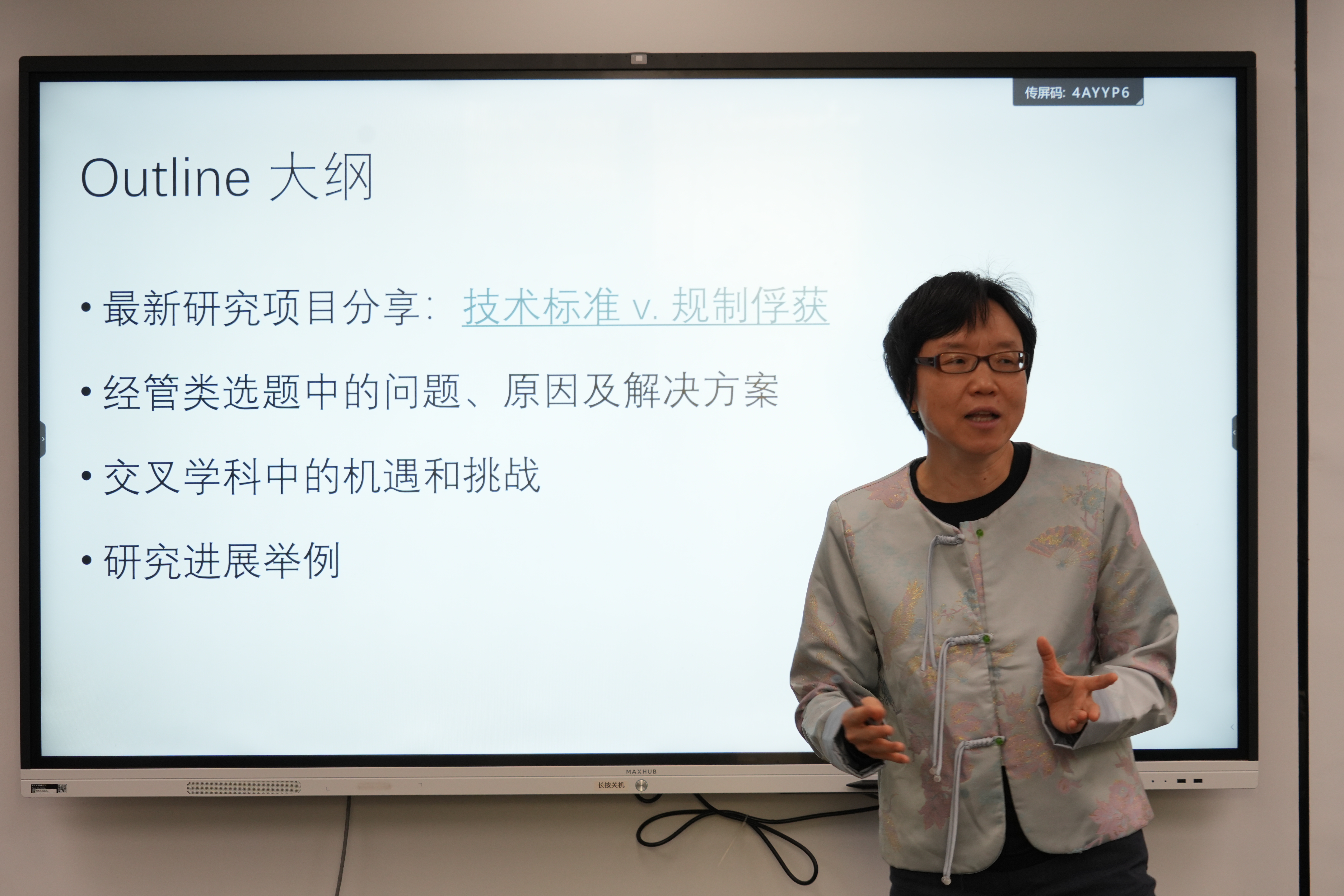
Professor Long Xiaoning, as an invited guest, then delivered a keynote address titled "Innovating Innovation Research". Using the impact of technology standards on corporate performance as an example, Professor Long discussed the challenges and prospects of interdisciplinary research of economics and management in technological innovation. Firstly, she emphasized the critical role of technology standards in innovation and economic development. The core finding of the research highlighted that enterprises involved in setting standards subsequently experienced increased profits, yet their innovation capabilities declined. Building on this study on technology standards from an economics perspective, Professor Long shared her views on research topics in management and economics. She noted challenges in current economics research topics, such as clustered research problems, trivial projects, and excessive focus on technical details. Professor Long pointed out that the emergence of massive data, reduced computational costs, and the lack of quality standards for new issues are fundamental reasons for these challenges. Looking ahead, she proposed solutions to address the overcrowding of research topics in management and economics, suggesting adjustments to evaluation systems, increased focus on issue importance, encouragement of diverse research methods, and the adoption of innovative interdisciplinary perspectives.
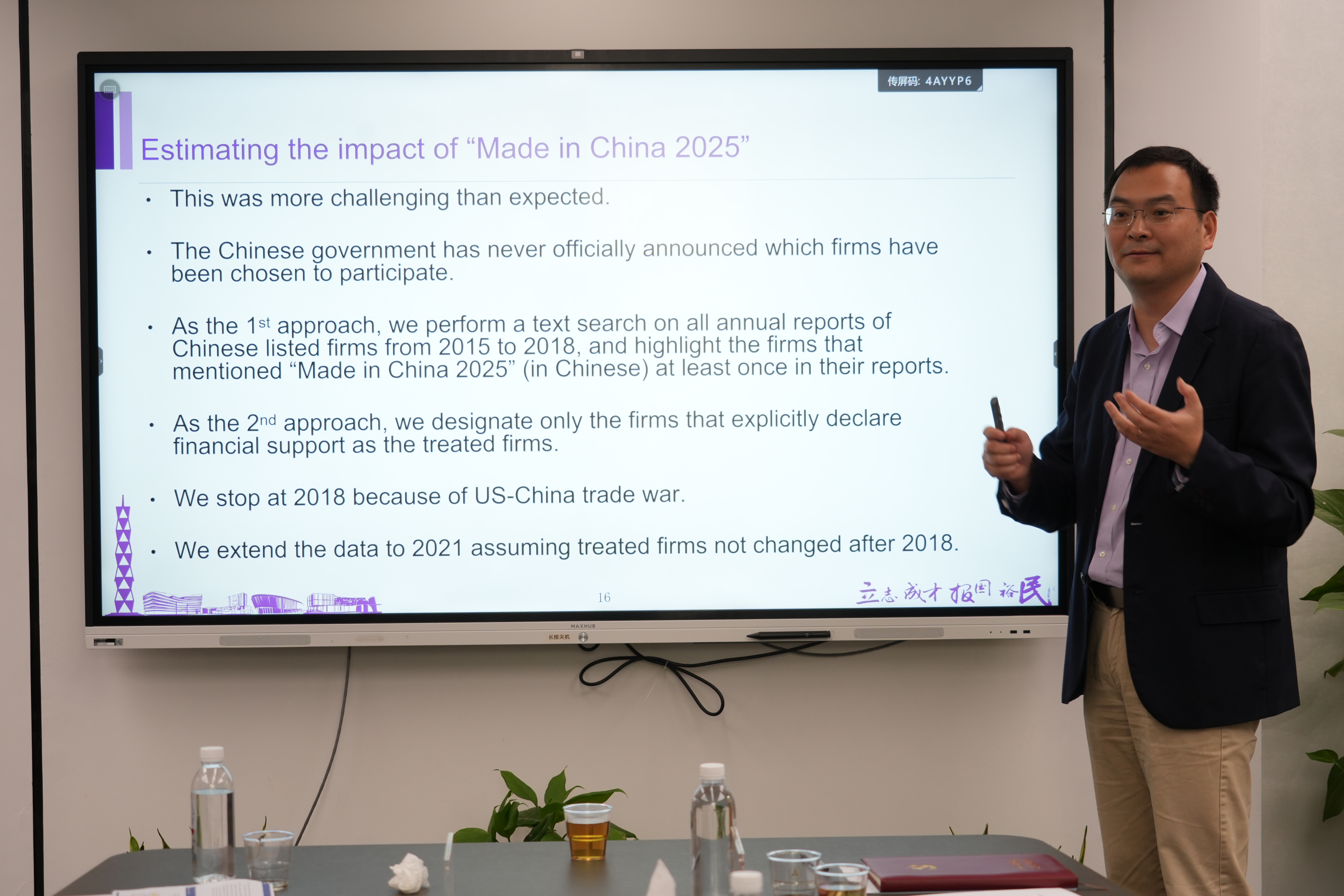
Following this, Professor Li Guangwei introduced the opportunities and challenges of China's policies to promote industrial innovation. Initially, Professor Li introduced the background of a series of industrial policies launched by China in 2015. These policies aimed to significantly enhance the overall quality, innovation capabilities, and labor productivity of the manufacturing industry, as well as to promote the deep integration of industrialization and informatization. Despite challenges such as labor shortages, diminishing returns on capital, and declining total factor productivity, industrial policies aimed to address market failures through financial subsidies. However, research findings did not observe significant improvements in enterprises' patent applications, labor productivity, and total factor productivity. This suggests that the primary goal of the policy — enhancing the innovation capabilities of target enterprises — has yet to be achieved, indicating a need for further research on the optimization of the series of industrial policies.
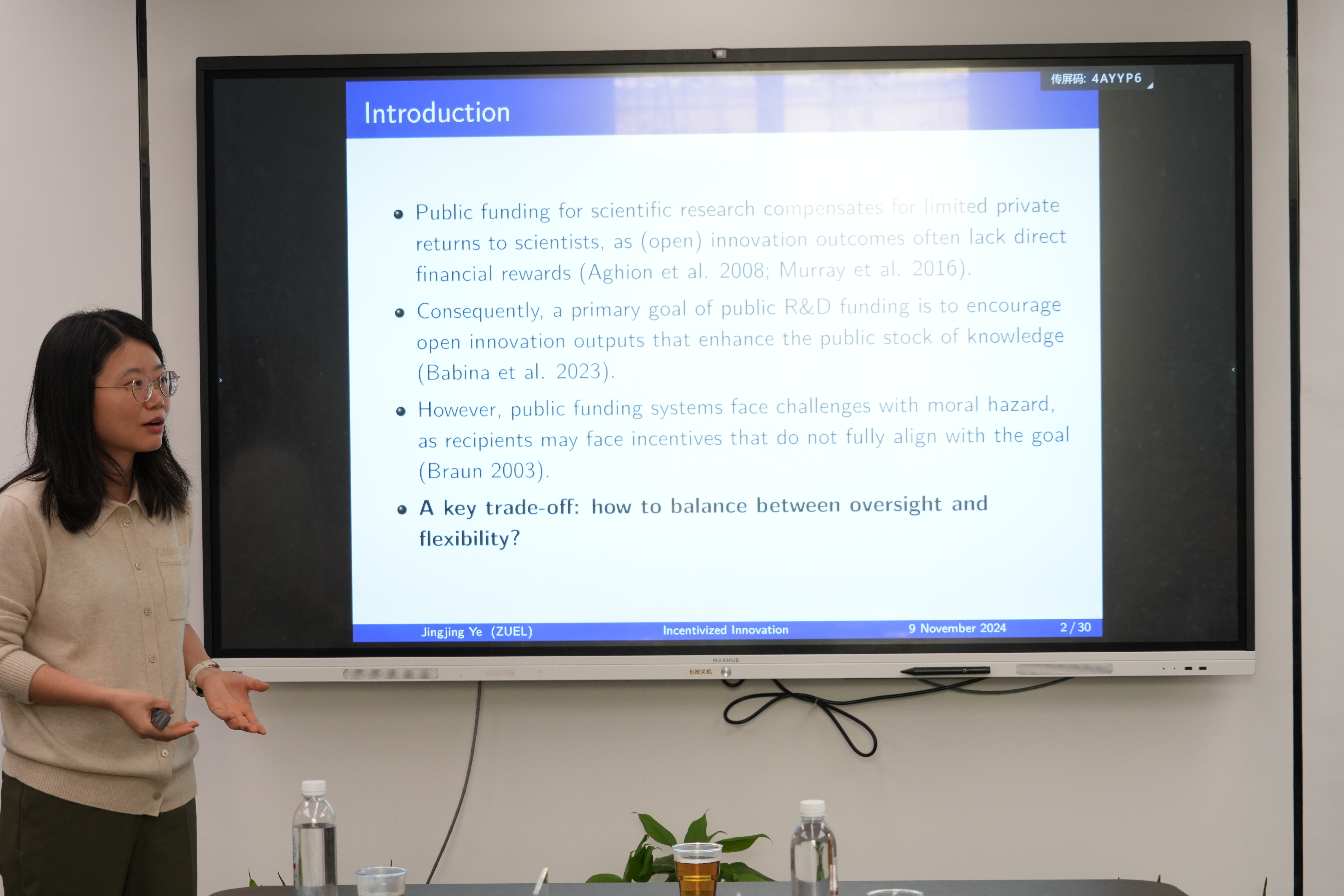
Professor Ye Jingjing's research focuses on the relationship between the budget structure of public financial funds and scientists' innovative activities. The core logic of financial support for science and technology is to address the positive externalities inherent in scientific innovation activities. How to optimize incentive system design to encourage the output of open innovation is a significant issue of widespread social concern. The research results indicate that incentive-compatible budget item design can stimulate an increase in the quantity of scientific innovation output, especially for public innovation effects carried by scientific papers. This suggests that it is necessary to not only focus on the overall scale of scientific research expenditure but also pay attention to budget structure to incentivize scientists to engage in scientifically innovative activities that hold greater societal value.
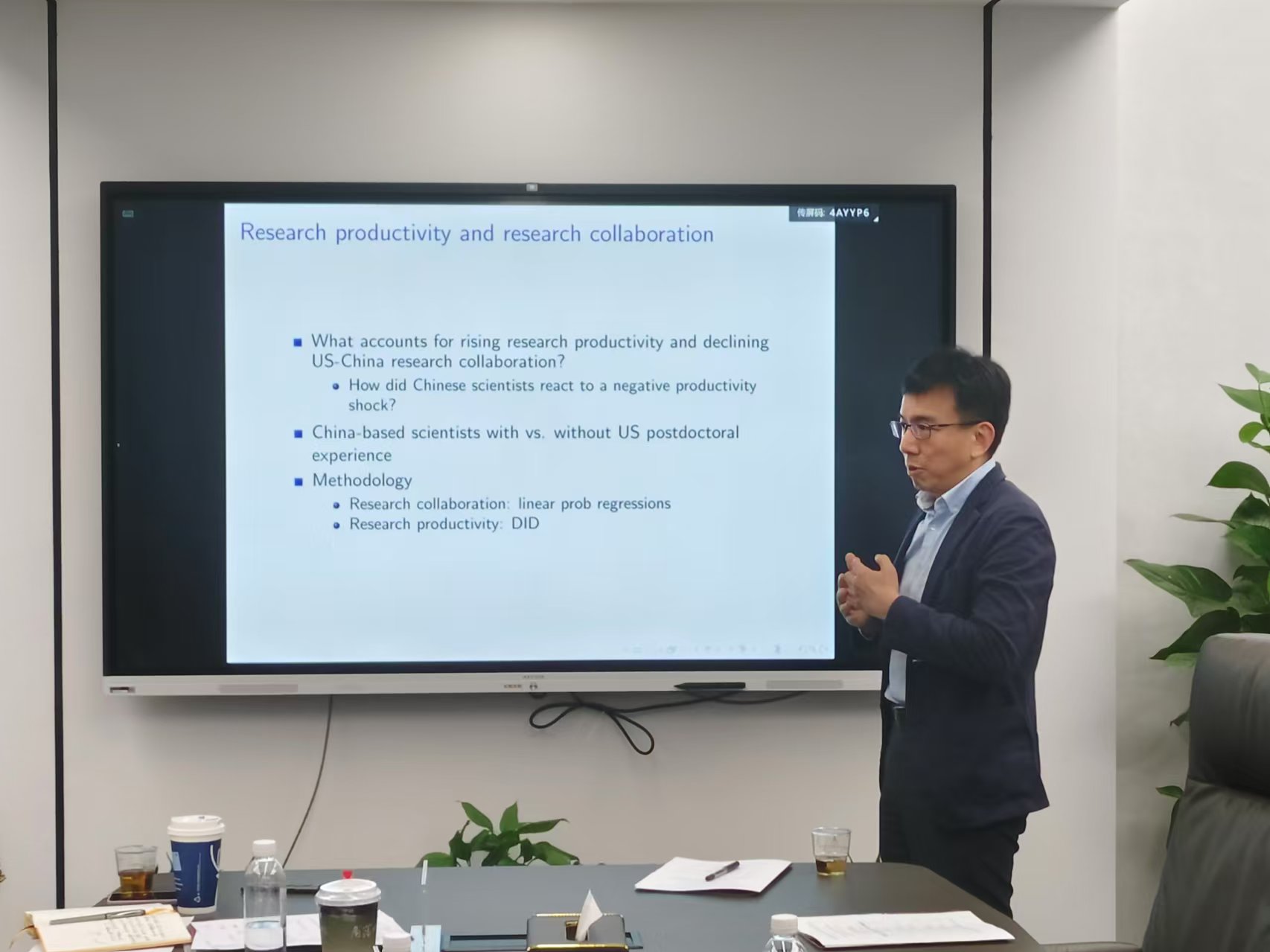
Professor Albert Hu from the China Europe International Business School delivered a keynote address on Sino-U.S. scientific research collaboration and the productivity of Chinese scientists. Professor Hu's research indicates that while recent U.S. measures have reduced international scientific research collaboration, internal team collaborations among Chinese scientists have significantly increased, thus not impacting the productivity of Chinese scientists. Professor Hu focused on research projects involving Chinese scientists in journals like Cell, Nature, and Science. By manually collecting data on corresponding authors' resumes and Web of Science publications, he found that despite reduced Sino-U.S. collaboration, there has been an upward trend in the productivity of Chinese scientists. Overall, there is an increasing trend of "localization" in Chinese science, reflecting an enhancement in indigenous innovative capabilities.
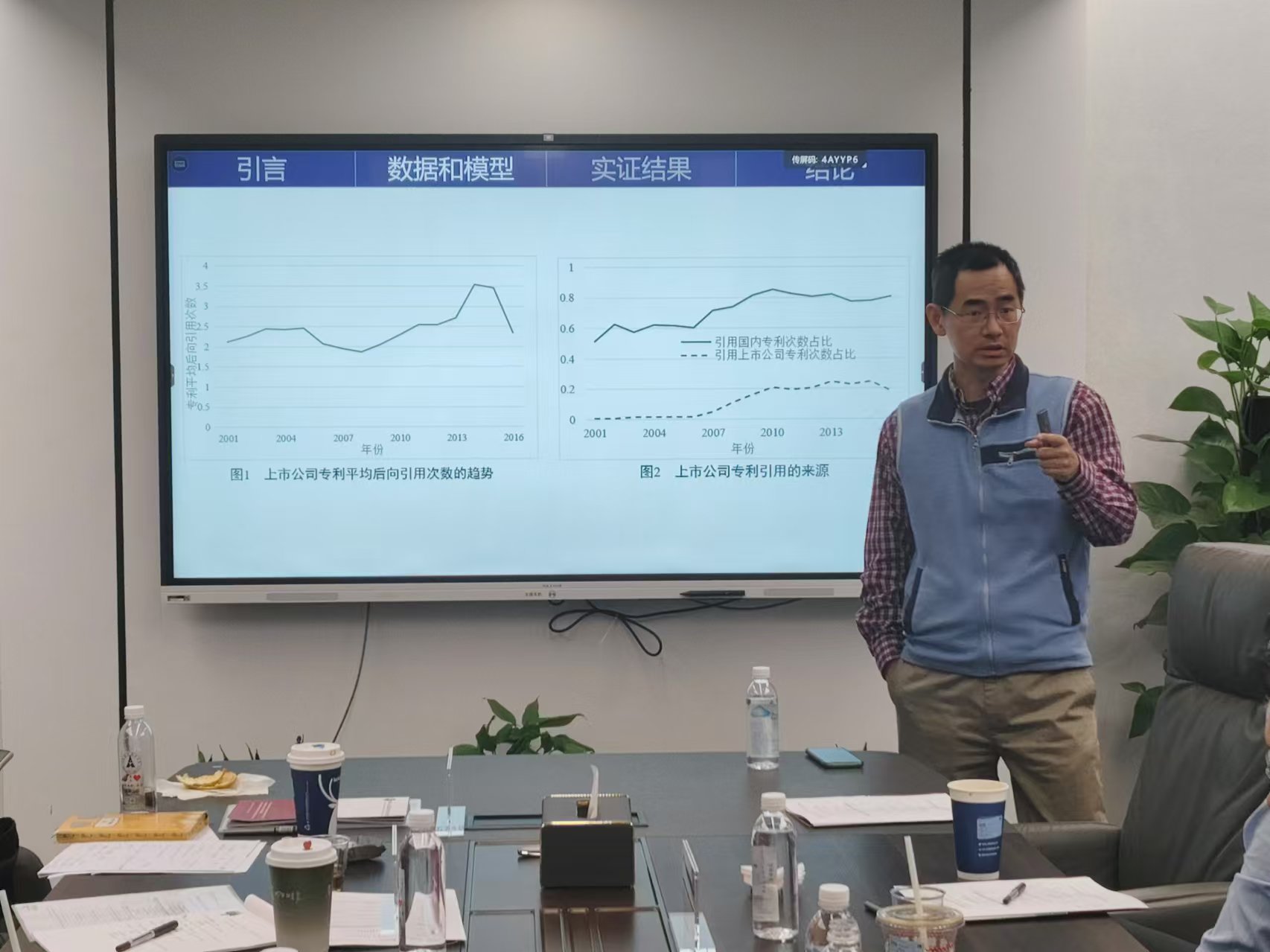
Professor Rong Zhao from the Wenlan School of Business shared research on the relationship between common institutional shareholding and knowledge spillovers among companies. Professor Rong and his team focused on Chinese listed companies, revealing that public fund common shareholding significantly increases the likelihood of inter-company patent citations, thereby promoting knowledge spillovers. Specifically, for each 1% increase in public fund common shareholding, there is a 1.5% higher probability of inter-company patent citations. Furthermore, stronger knowledge spillover effects are observed when companies are geographically distant, have closer geographical proximity with the fund, offer stock option incentives, and operate in highly competitive environments. The study also found that knowledge spillover effects mainly stem from citations of complex patents, and public fund common shareholding enhances inter-company patent similarity. This effect is primarily driven by passive public funds, particularly those engaged in long-term shareholdings.
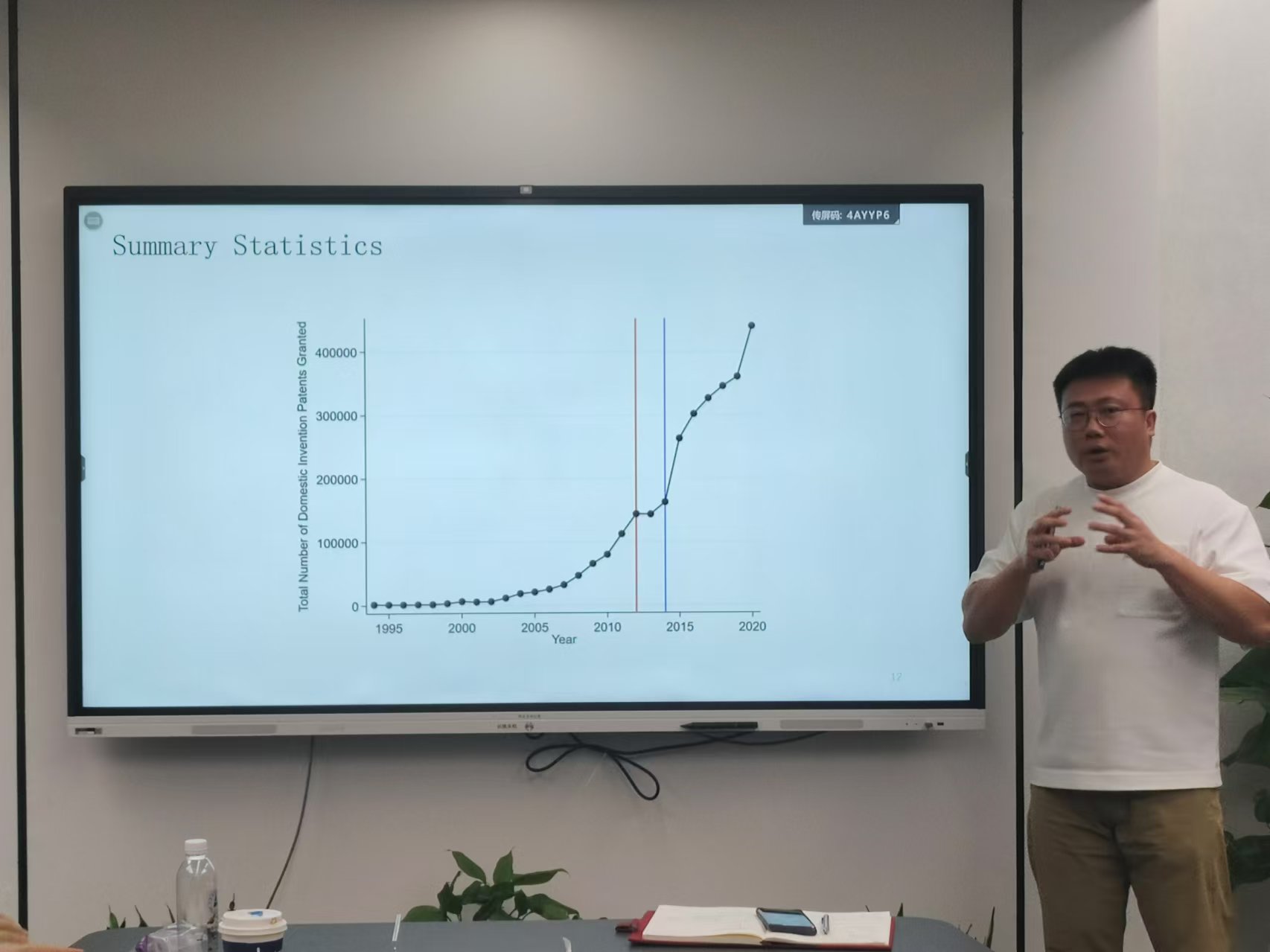
Researcher Wan Qian shared a study on the impact of establishing intellectual property courts on innovation, discussing how legal and financial tools promote knowledge production and flow. Wan Qian first emphasized the importance of intellectual property protection for innovation, highlighting the role of judicial protection in reducing the likelihood of infringement. Through empirical research, he analyzed the positive impact of establishing intellectual property courts in China on the number of invention patents at the city level, indicating a 13% increase in patents due to this reform, potentially enhancing the quality of the patent structure. By comparing China's administrative and judicial systems in intellectual property protection, Wan pointed out the advantages of specialized intellectual property courts in terms of efficiency and fairness.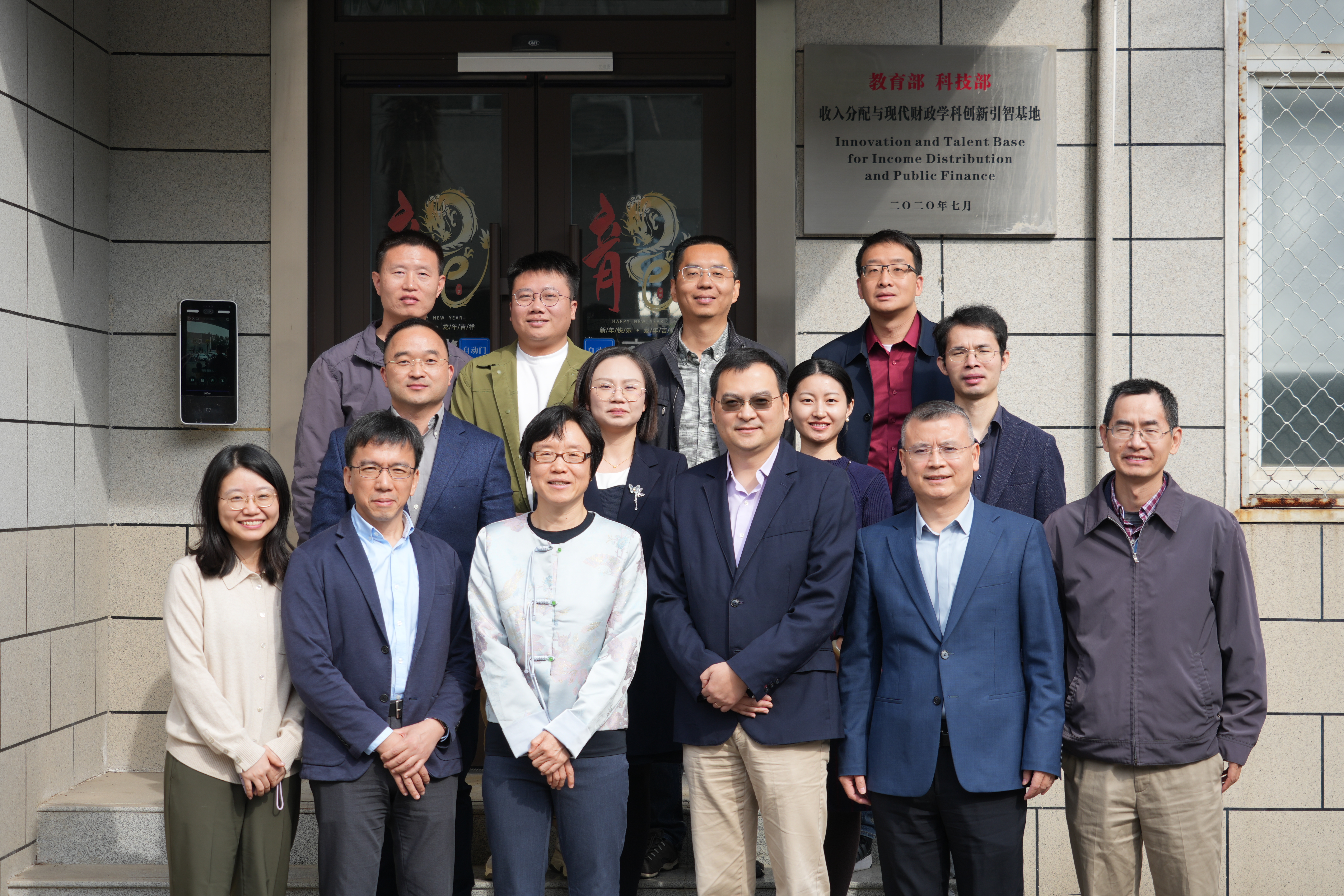
The distinguished guests brought an exciting academic discussion to the audience, sparking deep reflections on the technological development and economic effects of innovation policies. During the discussion session, both faculty and students actively participated, and the symposium concluded successfully after a lively exchange on how technology policy impacts scientific research innovation.
